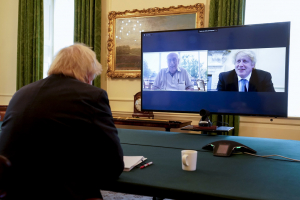Support migrant centric journalism today and donate

By Sanwar Ali:
The UK continues to bring in tougher immigration and nationality controls, and on 31 July 2023 brought in stricter rules that will impact the ability of serious offenders to secure UK citizenship. The government says that this is part of their commitment to securing UK borders, and makes it tougher to meet the “good character” requirement of citizenship applications.
Under the discontinued Tier 1 Investor visa program, Oligarchs, some of whom had questionable backgrounds, were granted entry and indefinite leave to remain in the UK. It is not certain how many of these people have UK citizenship. The Tier 1 Investor visa scheme was closed on 17 February 2022 just before the Russian invasion of the Ukraine.
Suelle Braverman the Home Secretary had the following to say in January 2023 about Tier 1 Investor scheme applicants:
“The review of cases identified a small minority of individuals connected to the tier 1 (investor) visa route that were potentially at high risk of having obtained wealth through corruption or other illicit financial activity, and/or being engaged in serious and organised crime...”
A Shift in the Good Character Requirement
The "good character" requirement is a crucial prerequisite for obtaining British citizenship. Factors under consideration include criminal convictions, immigration offending, and serious behaviour such as war crimes, terrorism or genocide.
Under the new rules, the criteria for the "good character" requirement are becoming stricter and more specific. The key change is the application of tougher rules to those who have served a 12-month prison sentence. Prior to this the rules were more lenient; an attempt to gain British citizenship would typically be refused if an individual had received a four-year jail term.
A Bid to Align with Immigration Rules
The new rules are designed to align the citizenship criteria with immigration rules. The goal is to make sure that citizenship standards are just as strict as immigration standards. The changes are primarily aimed at serious criminals, with the intention to prevent them from gaining British citizenship, irrespective of when or where the crime occurred.
The End of Prescribed Years of Rehabilitation
These new regulations eliminate the previous rules, which allowed some criminals to be granted British citizenship after a certain number of years had passed since the completion of their sentence. This was irrespective of the nature of the crime or its location. Now, the passage of time since the sentence ended will no longer be a determining factor in the citizenship application of serious criminals.
Statement from the Home Secretary
Home Secretary Suella Braverman had the following to say:
"British citizenship is a privilege. Those who commit crimes shouldn't be able to enjoy the breadth of rights citizenship brings, including holding a British passport, voting and accessing free medical care from the NHS. I am cracking down on abuse of the UK's immigration and nationality system, by introducing a tougher threshold so that serious criminals cannot gain British citizenship. This is the fair and right thing to do for our country..."
Exceptions to the Rule
While the rules are tough, some exceptions will be permitted, which will be assessed on a case-by-case basis. For instance, if someone committed a minor offence a long time ago but has since demonstrated significant, positive changes, they may still be considered to be of good character and thus eligible for an exceptional grant of British citizenship.
The Road Ahead: Skilled Worker Visa and other Immigration Paths
The new rules, while primarily affecting the path to citizenship, also highlight the UK government's intent to bring in tougher immigration policies in general. immigration pathways, such as the Skilled Worker Visa, Temporary Work Visa, and the Global Talent Visa may become tougher in future.
How Workpermit.com Can Help with Sponsor Licences
If you need help with employing Skilled Workers and help to apply for a Sponsor Licence, including complying with your Sponsor Licence obligations, Workpermit.com can help.
For more information and advice, please contact us at 0344 991 9222 or at london@workpermit.com(link sends e-mail)





















